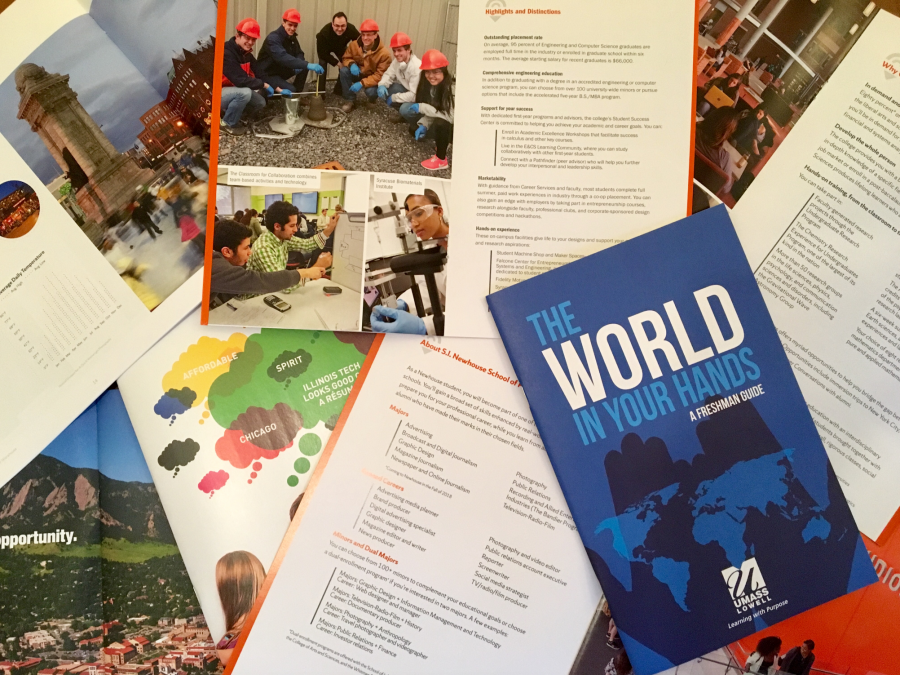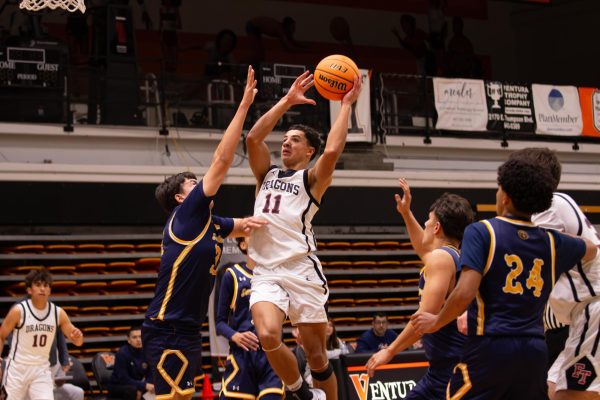Teachers provide advice and encouragement as seniors face college decision day
Noelle Hayward
It’s time for seniors to choose which colleges suit their needs, and for underclassmen to begin preparing for the journey ahead.
April 28, 2020
The time has come for high school seniors to decide on the next step of their academic career as the deadline to commit to universities is approaching rapidly, falling on May 1, 2020. However, amid the COVID-19 outbreaks and stay-at-home orders, many colleges are extending their deadlines to June 1, 2020. This extra time is unlikely to allow them to be able to visit schools in person, especially not while any enrolled student body is on campus.
While the unconventional circumstances have taken a toll on the class of 2020, various teachers at Foothill are confident these students can take on the challenge of what lies ahead of them.
Regarding the academic preparation received at Foothill, government and English teacher Richard Geib states that he has had plenty of “students say that Ventura College is much easier than Foothill, and students who go to more prestigious colleges felt that they were solidly prepared.”
ASB (Associated Student Body) Adviser and English teacher Melanie “Captain” Lindsey believes that Foothill does “almost too good of a job” at preparing students for college. She points out that students sometimes become “sort-of bored in the beginning because they have been over-prepared for some colleges, but then those who are being challenged say that they’re challenged, but that they have been well prepared for what they have to deal with.”
Although math teacher Wayne Powers also believes that Foothill does offer students an excellent academic preparation, he wonders “if the environment here invites that feeling of high stress from taking on too much,” like “trying to stay afloat” in AP (Advanced Placement) courses.
Upon enrollment at Foothill, one of the fundamental questions that students have is what time they should start preparing for college. Geib says that students should begin preparing as early as seventh grade, and should “always be thinking about what schools [they] like.”
He claims that narrowing down college choices becomes easier by sophomore and junior years of high school because students “understand where [their] grades are.”
“By senior year, you probably should have thought about this a fair amount,” Geib said.
Similarly, Powers claims that once students get to their senior year, it may even be too late to start preparing for college, since students should have “already put in their time” from previous high school years in both academics and bonding with teachers.
Powers believes that “the day they get to high school,” students should be starting to prepare for college by focusing on the main prerequisites that will get them into their college choices, including “good grades in your classes, a good work ethic, community service and being a good person.”
Lindsey recommends for students to develop habits as early as possible that “are going to be beneficial for college,” and warns that “if they keep procrastinating as seniors,” students will not be able to comply with rigorous collegiate demands. Lindsey suggests for students to “learn how to calendar, learn how to time manage, [and] develop good habits now while they have a support system to do it.”
The time for high school seniors to make their final decisions regarding the colleges they will attend is upon them, and they are faced with one of the biggest decisions of their lives. Geib urges “high school seniors to really be honest with themself (sic) on what is a good fit.” He asserts that in the process of choosing the best college, a student must ask themselves, “does it fit,” and “does it feel right?”
He suggests that students should allow their options to “percolate in the subconscious to process” before making their final decision.
However, “not getting into the college that they think they want to go to does not mean not getting a good education,” Lindsey points out.
Lindsey feels that students “will get a good education if they demand a good education,” and adds that “it’s not about where you go to school, but it’s about how you go to school.” She believes that the individual has the power to decide how beneficial their college experience will be.
To those overwhelmed by the choice they must make, Geib’s advice is that the feeling “shall pass, and next fall, you’ll be admitted to a college and you’re generally pretty happy.”
“College is an exciting time of life and should be a reward for all your hard work,” he said.
Lindsey shares this optimism and feels that once all of the applications, essays and testing are complete, as seniors have already worked through, seniors will find their “right” niche along with a “good college experience.”
“I believe that they will go where they need to go,” she said.













